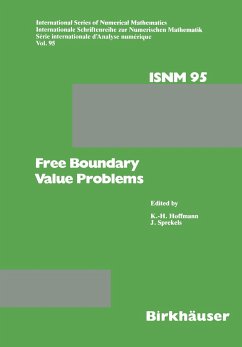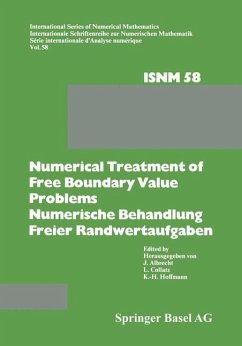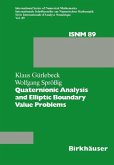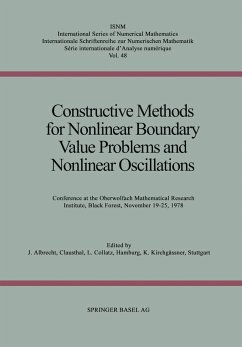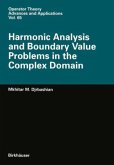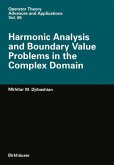This monograph contains a collection of 16 papers that were presented at the confer ence "Free Boundary Problems: Numerical 7reatment and Optimal Control", held at the Mathematisches Forschungsinstitut Oberwolfach, West Germany, July 9-15, 1989. It was the aim of the organizers of the meeting to bring together experts from different areas in the broad field of free boundary problems, where a certain emphasis was given to the numerical treatment and optimal control of free boundary problems. However, during the conference also a number papers leading to important new theoretical insights were presented. The strong connection between theory and applications finds its reflection in this monograph which contains papers of high theoretical and numerical interest, as well as applications to important practical problems. Many of the contributions are concerned with phase transition phenomena, a field which was of particular importance during the meeting; topics like spinodal decomposition, shape memory alloys, crystal growth and flow through porous media are addressed. Another field of major interest during the con ference was fluid flow; also this field is addressed in this volume. The volume opens with a contribution by H. W. Alt and I. Pawlow. In their paper the problem of spinodal decomposition is treated in the non-isothermal situation. For the first time the existence of a weak solution to the corresponding system of evolution equations could be proved. The results of some numerical experiments are also reported. In the following paper, M. Bornert and I.
Hinweis: Dieser Artikel kann nur an eine deutsche Lieferadresse ausgeliefert werden.
Hinweis: Dieser Artikel kann nur an eine deutsche Lieferadresse ausgeliefert werden.

